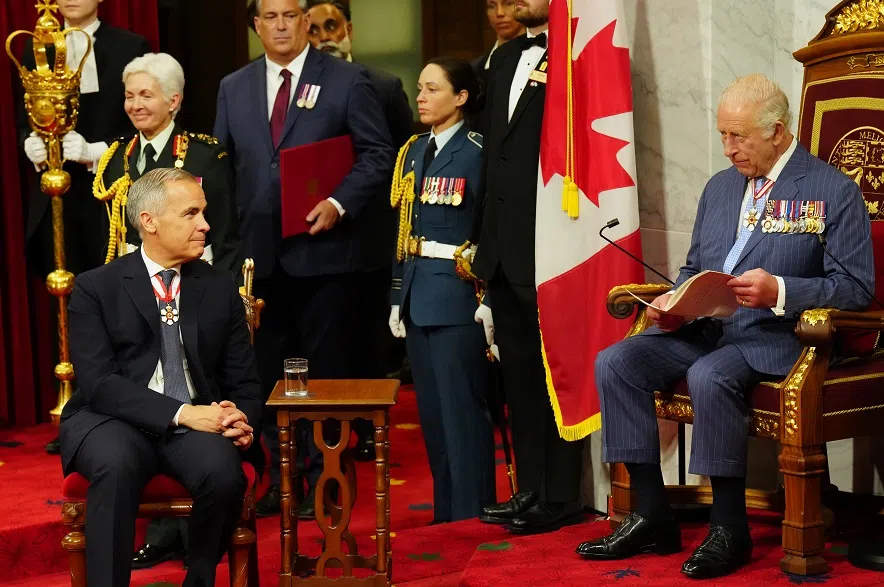A Regina history professor says King Charles’ throne speech had shades of previous royal visits, but it’s getting harder and harder for Canadians to buy into the monarchy.
On Tuesday’s Evan Bray Show, Raymond Blake, a professor at the University of Regina, questioned just how many Canadians were actually paying attention to king’s speech in Ottawa.
Read More:
- Local MP says Throne Speech lacking a plan for its promises
- The Latest: King Charles leaves Canada after delivering throne speech
- Throne speech underscores Canada’s sovereignty, commits to joining ReArm Europe
Listen to the full interview:
“There’s a sense of apathy and disenchantment with the monarchy,” Blake said.
“When Charles became king, most Canadians said ‘This is anachronistic. We don’t need this anymore.’ Whether or not (interest) can be revived when 80 per cent of Canadians say they have no interest in the monarchy – it’s a tall order.”
Blake said several things stood out to him during the speech on Tuesday, which laid out the federal government’s priorities. He Prime Minister Mark Carney’s decision to invite King Charles to deliver the speech personally might have been a way to “get at” U.S. President Donald Trump.
“King Charles is greatly revered by our new nemesis, Mr. Trump, and one way to sort of get at Mr. Trump, it seems, was to invite the person that he perhaps admires more than himself, which is King Charles,” Blake said.
Blake noted that the speech emphasized the importance of the Crown at a time when other Commonwealth nations like Australia and New Zealand are pushing back against the monarchy.
“Mr. Harper tried to do that by putting the Queen’s picture in embassies around the world, which immediately came down in 2016 when Mr. Trudeau became prime minister,” he said.
“In many ways, (this speech) was a renunciation of everything that Prime Minister Trudeau tried to do, and it was a reaffirmation of the sense of identity that Stephen Harper tried to build from 2006 to 2015.”
Blake said Charles’ mentions of global instability and uncertainty echoed past speeches in Canada’s history, like Prime Minister John Diefenbaker’s 1957 address in which he said the nation had become too reliant on the U.S. during the postwar period.
“(Diefenbaker) was the one who wanted to transfer a large share of Canadian trade with the Americans to the British and into the Commonwealth. People around the country sort of pooh-poohed him, and they talked about Diefenbaker being so out of touch with reality,” Blake said.
“And what are we doing some 60-70 years later? We’re saying, ‘Hey, we have too much trade with the Americans. We need to diversify our trade.’ Diefenbaker loved the monarchy, and it seems like Mr. Carney does as well.”
Blake said Charles’ mention of national pride was interesting because until recently, many Canadians reported lower levels of national pride compared to 2015. He said national pride began to increase as Canada entered a trade war with the U.S., but said he wasn’t sure if it could persist beyond the threats from Trump.
“Canadians are flying flags in ways they’ve never flown them before,” he said.
“I’m not sure if our national identity and our national pride can be sustained if it is directed towards an individual outside of the country.”











